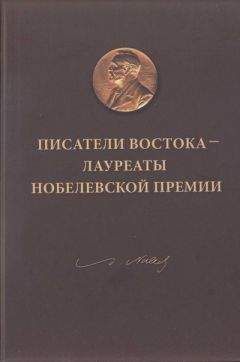"Much better (гораздо лучше)."
"Isn't that lovely (вот хорошо: «/разве/ это не замечательно»)? You know I thought perhaps you would (знаешь, я /так и/ думала, что тебе станет лучше: «что ты, наверно, будешь /чувствовать себя лучше/»). You were sleeping when I left (ты спал, когда я ушла; to leave — оставлять; покидать; уходить, уезжать)."
"I had a good sleep (я хорошо поспал). Did you walk far (ты далеко ходила)?"
"No. Just around behind the hill (только за холм /зашла/). I made quite a good shot on the Tommy (я хорошо в него попала: «сделала хороший выстрел в томми»)."
"You shoot marvellously, you know (да, ты замечательно стреляешь)."
"I love it (мне это нравится). I've loved Africa (я полюбила Африку). Really (правда). If you're all right it's the most fun that I've ever had (если ты в порядке = главное, чтобы тебе стало лучше, /и тогда/ это = эта поездка самое замечательное, что у меня было /в жизни/; fun — веселье, забава; развлечение). You don't know the fun it's been to shoot with you (ты не знаешь = даже не представляешь, как мне интересно охотиться вместе с тобой). I've loved the country (я полюбила эту землю)."
"I love it too (я тоже ее люблю)."
"Darling, you don't know how marvellous it is (милый, если бы ты только знал, как это замечательно) to see you feeling better (видеть, что тебе лучше). I couldn't stand it (я /просто/ места себе не находила: «вынести не могла»; to stand — стоять; быть стойким, держаться; выдерживать, выносить) when you felt that way (когда с тобой это творилось: «ты чувствовал себя подобным образом»). You won't talk to me like that again, will you (ты ведь больше не будешь так говорить со мной)? Promise me (обещаешь)?"
"No (не буду)," he said. "I don't remember what I said (я не помню, что я говорил)."
potato [pq'teItqV], marvellously ['mRv(q)lqslI], promise ['prOmIs]
Here she came now.
He turned his head on the cot to look toward her. "Hello," he said.
"I shot a Tommy ram, " she told him. "He'll make you good broth and I'll have them mash some potatoes with the Klim. How do you feel?"
"Much better."
"Isn't that lovely? You know I thought perhaps you would. You were sleeping when I left."
"I had a good sleep. Did you walk far?"
"No. Just around behind the hill. I made quite a good shot on the Tommy."
"You shoot marvellously, you know."
"I love it. I've loved Africa. Really. If you're all right it's the most fun that I've ever had. You don't know the fun it's been to shoot with you. I've loved the country."
"I love it too."
"Darling, you don't know how marvellous it is to see you feeling better. I couldn't stand it when you felt that way. You won't talk to me like that again, will you? Promise me?"
"No," he said. "I don't remember what I said."
"You don't have to destroy me. Do you (ты ведь не хочешь мучить: «уничтожать» меня: «тебе ведь не надо…»; to destroy — разрушать, ломать; убивать; доканывать; ломать, портить кому-либо жизнь)? I'm only a middle-aged woman who loves you (я всего лишь немолодая женщина, которая любит тебя; middle-aged — средних лет) and wants to do what you want to do (и хочет делать то, что хочется делать тебе). I've been destroyed two or three times already (меня уже не раз мучили). You wouldn't want to destroy me again, would you (ты не станешь: «не захочешь» меня мучить, ведь нет)?"
"I'd like to destroy you a few times in bed (хотел бы я тебя помучить пару раз в постели)," he said.
"Yes. That's the good destruction (это хорошее мучение). That's the way we're made to be destroyed (мы созданы для того, чтобы нас так мучили). The plane will be here tomorrow (завтра прилетит самолет)."
"How do you know (откуда ты знаешь)?"
"I'm sure (я уверена). It's bound to come (он обязательно прилетит; bound — связанный /прям. и перен./; обязанный, вынужденный; непременный, обязательный). The boys have the wood all ready (бои приготовили хворост: «имеют хворост наготове»; wood — лес; древесина; дрова, хворост) and the grass to make the smudge (и траву для дымового костра). I went down and looked at it again today (я сегодня опять ходила /туда/ и смотрела). There's plenty of room to land (места для посадки: «чтобы приземлиться/сесть» достаточно; plenty — /из/обилие; достаток; большое количество, много) and we have the smudges ready at both ends (и у нас все готово для костров по обеим сторонам; smudge — костер или горючее для получения густого дыма)."
"What makes you think it will come tomorrow (почему ты думаешь: «заставляет тебя думать», что он прилетит завтра)?"
"I'm sure it will (я уверена, что прилетит). It's overdue now (давно пора; overdue — просроченный; опаздывающий; due — должный, обязанный; ожидаемый). Then, in town, they will fix up your leg (в городе твою ногу /живо/ приведут в порядок; to fix up — привести в порядок; починить; подправить) and then we will have some good destruction (и тогда мы уж помучаем друг друга: «у нас будет хорошее мучение»). Not that dreadful talking kind (и не этими ужасными разговорами: «не такое как это, с ужасными разговорами»; kind — разновидность, вид)."
bound [baVnd], smudge [smAG], dreadful ['dredfVl]
"You don't have to destroy me. Do you? I'm only a middle-aged woman who loves you and wants to do what you want to do. I've been destroyed two or three times already. You wouldn't want to destroy me again, would you?"
"I'd like to destroy you a few times in bed," he said.
"Yes. That's the good destruction. That's the way we're made to be destroyed. The plane will be here tomorrow."
"How do you know?"
"I'm sure. It's bound to come. The boys have the wood all ready and the grass to make the smudge. I went down and looked at it again today. There's plenty of room to land and we have the smudges ready at both ends."
"What makes you think it will come tomorrow?"
"I'm sure it will. It's overdue now. Then, in town, they will fix up your leg and then we will have some good destruction. Not that dreadful talking kind."
"Should we have a drink (давай выпьем)? The sun is down (солнце уже село)."
"Do you think you should (думаешь, тебе можно)?"
"I'm having one (я выпью)."
"We'll have one together (выпьем вместе). Molo, letti dui whiskey-soda!" she called (принеси виски с содовой /суахили/, — крикнула она).
"You'd better put on your mosquito boots (тебе лучше надеть ботинки от москитов)," he told her.
"I'll wait till I bathe (я сначала: «подожду, пока не» помоюсь)..."
While it grew dark they drank (пока темнело, они пили) and just before it was dark and there was no longer enough light to shoot (а перед тем как стало /совсем/ темно и стрелять было уже нельзя: «уже не было достаточно света, чтобы стрелять»), a hyena crossed the open on his way around the hill (по открытому месту пробежала гиена и скрылась за холмом: «по пути вокруг холма открытое место пересекла гиена»).
"That bastard crosses there every night (эта дрянь каждый вечер здесь бегает)," the man said. "Every night for two weeks (каждый вечер две недели /подряд/)."
"He's the one makes the noise at night (это та самая, что воет по ночам; noise — шум; звук). I don't mind it (мне она не мешает: «я не имею ничего против этого»). They're a filthy animal though (хотя они противные животные; filthy — грязный; мерзкий, противный)."
Drinking together (/теперь/, когда они пили вместе), with no pain now except the discomfort of lying in the one position (и боль исчезла, только неудобно: «теперь без боли, кроме неудобства» лежать в одном положении), the boys lighting a fire (а бои разводили: «зажигали» костер), its shadow jumping on the tents (и тень от него металась: «прыгала» по стенкам палаток), he could feel the return of acquiescence in this life of pleasant surrender (он чувствовал, как к нему снова возвращается примиренность с этой жизнью, ставшей приятной неволей: «чувствовал возвращение примиренности с этой жизнью /полной/ приятной неволи»; to acquiesce — уступать, молча соглашаться; surrender — сдача; капитуляция; отказ /от права/). She was very good to him (она /в самом деле/ очень добра к нему). He had been cruel and unjust in the afternoon (он был жесток и несправедлив /сегодня/ после обеда). She was a fine woman (она хорошая женщина), marvellous really (просто замечательная). And just then it occurred to him (и в эту минуту: «прямо сейчас» он вдруг понял; to occur — встречаться, попадаться; случаться; приходить в голову) that he was going to die (что все-таки умирает).
mosquito [mq'skJtqV], hyena [haI'Jnq], acquiescence ["xkwI'es(q)ns]
"Should we have a drink? The sun is down."
"Do you think you should?"
"I'm having one."
"We'll have one together. Molo, letti dui whiskey-soda!" she called.
"You'd better put on your mosquito boots," he told her.
"I'll wait till I bathe..."
While it grew dark they drank and just before it was dark and there was no longer enough light to shoot, a hyena crossed the open on his way around the hill.
"That bastard crosses there every night," the man said. "Every night for two weeks."
"He's the one makes the noise at night. I don't mind it. They're a filthy animal though."
Drinking together, with no pain now except the discomfort of lying in the one position, the boys lighting a fire, its shadow jumping on the tents, he could feel the return of acquiescence in this life of pleasant surrender. She was very good to him. He had been cruel and unjust in the afternoon. She was a fine woman, marvellous really. And just then it occurred to him that he was going to die.
It came with a rush (это налетело вихрем; rush — стремительное движение, напор, натиск; стремительная атака); not as a rush of water nor of wind (не как поток воды или /порыв/ ветра); but of a sudden evil-smelling emptiness (но как /наплыв/ внезапной, дурно пахнущей/зловонной пустоты) and the odd thing was that the hyena slipped lightly along the edge of it (и самое странное было то, что по ее краю /этой пустоты/ легко/неслышно скользнула гиена).
"What is it, Harry (ты что, Гарри)?" she asked him.
"Nothing (ничего)," he said. "You had better move over to the other side (тебе лучше пересесть на другую сторону). To windward (с наветренной стороны = откуда ветер дует)."
"Did Molo change the dressing (Моло поменял тебе перевязку)?"
"Yes, I'm just using the boric now (у меня сейчас просто борная /примочка/: «я сейчас просто пользуюсь борной»)."
"How do you feel (как ты себя чувствуешь)?"
"A little wobbly (немного слабовато; wobbly — шатающийся; вихляющий; шаткий)."
"I'm going in to bathe (я пойду помоюсь)," she said. "I'll be right out (я быстро: «сразу же выйду»). I'll eat with you (я поем с тобой) and then we'll put the cot in (а потом мы занесем койку).
So, he said to himself (значит, — сказал он самому себе), we did well to stop the quarrelling (мы хорошо сделали, что перестали ссориться). He had never quarrelled much with this woman (он никогда особенно не ссорился с этой женщиной), while with the women that he loved he had quarrelled so much (в то время как с теми, которых любил, ссорился так много = часто) they had finally, always, with the corrosion of the quarrelling, killed what they had together (что в конце концов они неизменно убивали = заглушали ржавчиной ссор /все/, что связывало их: «что они имели сообща = общего»). He had loved too much (он любил слишком сильно), demanded too much (требовал слишком многого), and he wore it all out (и в конце концов оставался ни с чем: «и истощал все = их отношения»; to wear out — изнашивать; изнурять, истощать).


